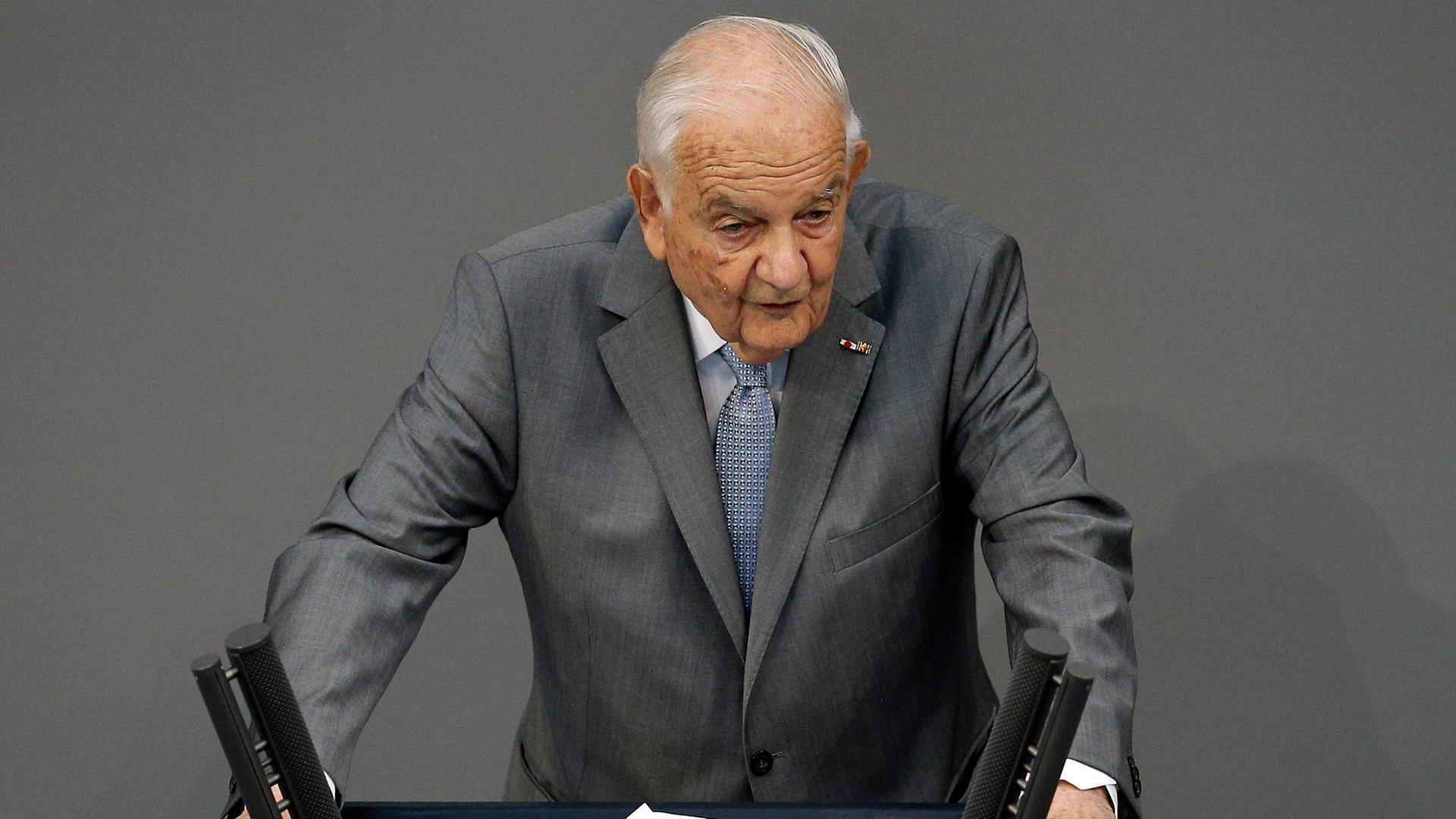Alfred Grosser: the man who wrote Franco-German history. The man with the mischievous laugh, the sharp mind. The eloquent, friendly intellectual whose sentences were full of ideas.
Grosser was born on February 1, 1925 in Frankfurt am Main to Jewish parents. He later said about his emigration to France in 1933: “And then we left in December 1933. I quickly learned French, then went to school normally, received first prize for French in 1935 and my memoirs are called ‘Memoirs of a Frenchman’. I emphasize this again and again in Germany: I am a real Frenchman, I am not a German with a French passport.”
An important mediator
Alfred Grosser’s Germany was post-war Germany. “My Germany” is also the title of one of the many books written by the Frenchman. He felt responsible for Germany’s future after the war.
“I was in my native Frankfurt for the first time in 1947, but at that time I was already determined about two things that I learned one night in August 1944 in Marseille with false papers, where I lived and taught at a Catholic school , and the BBC announced that the old people of Theresienstadt were being transported to Auschwitz, that was also the case for my father’s sister and her husband, and the next day I was finally sure that there was no collective guilt.”
Travel, conversations, lectures in school classes – Alfred Grosser was an important mediator between the two countries until the end. “In two communities I am accepted as a comrade-in-arms, even though I don’t belong to them, as a full Frenchman in Germany and, on the other hand, as an atheist in Catholic France – and I always have to explain that in Germany.”
Born in Germany, in the Resistance, studied politics and German studies in Aix-en-Provence and Paris after the war, held the renowned chair at the “Sciences Po” institute in Paris for decades, received the Great Cross of Merit with star and shoulder ribbon, Peace Prize Winner of the German Book Trade. The list of his life’s work is long.
Alfred Grosser was the intellectual pioneer and critical companion of German-French relations – and that was the combative spirit, the critical observer of Israel, for example.
Israel’s settlement policy – Alfred Grosser didn’t mince his words when it came to the Middle East conflict. “It is because my four grandparents and my two parents were Jews that I feel Israel’s violations of fundamental rights more bitterly than any other country.”
On the “duty to fight against Hitler’s values”
He regularly told the students, the many students to whom he spoke: “I always say the duty to fight against Hitler’s values. That means: All people are equal, have the same dignity, that’s it already in the Basic Law, and apply it to the Palestinians, for example – and that has nothing to do with anti-Semitism.”
Alfred Grosser also always measured France’s politics with this yardstick. The suffering France, these are the young people with the wrong postal codes, the immigrant first names, who have no chances in this society – Grosser also stood up for them.
The basis – that’s what counted for the professor, the scholar. Also in German-French relations. “I never like to say the word friendship, because who is friends with whom?” says Grosser. “But socially there are more connections between Germany and France at all levels, the lawyers, the universities, the cities, the high schools, than ten times, twenty times more than between Germany and any other country and France and any other country. That is not enough “To make Europe, but this human infrastructure was always present – even when there were political crises.”
Alfred Grosser relied on the human infrastructure, not on the symbols of politics, which he also considered to be wrong. Adenauer and de Gaulle in Reims Cathedral “beautiful”, Mitterrand and Kohl in Verdun “very moving”, Merkel and Sarkozy at the Arc de Triomphe on November 11th “beautiful”. All wrong, all symbols of the First World War, he said – “during the Second World War we should have met in Dachau, where the French and Germans were prisoners together.”
The desk chair in front of the bulging wall of books in Alfred Grosser’s study in the 15th district of Paris now remains empty – there will no longer be any opportunities to say goodbye to a great spirit in person after a stimulating interview.
